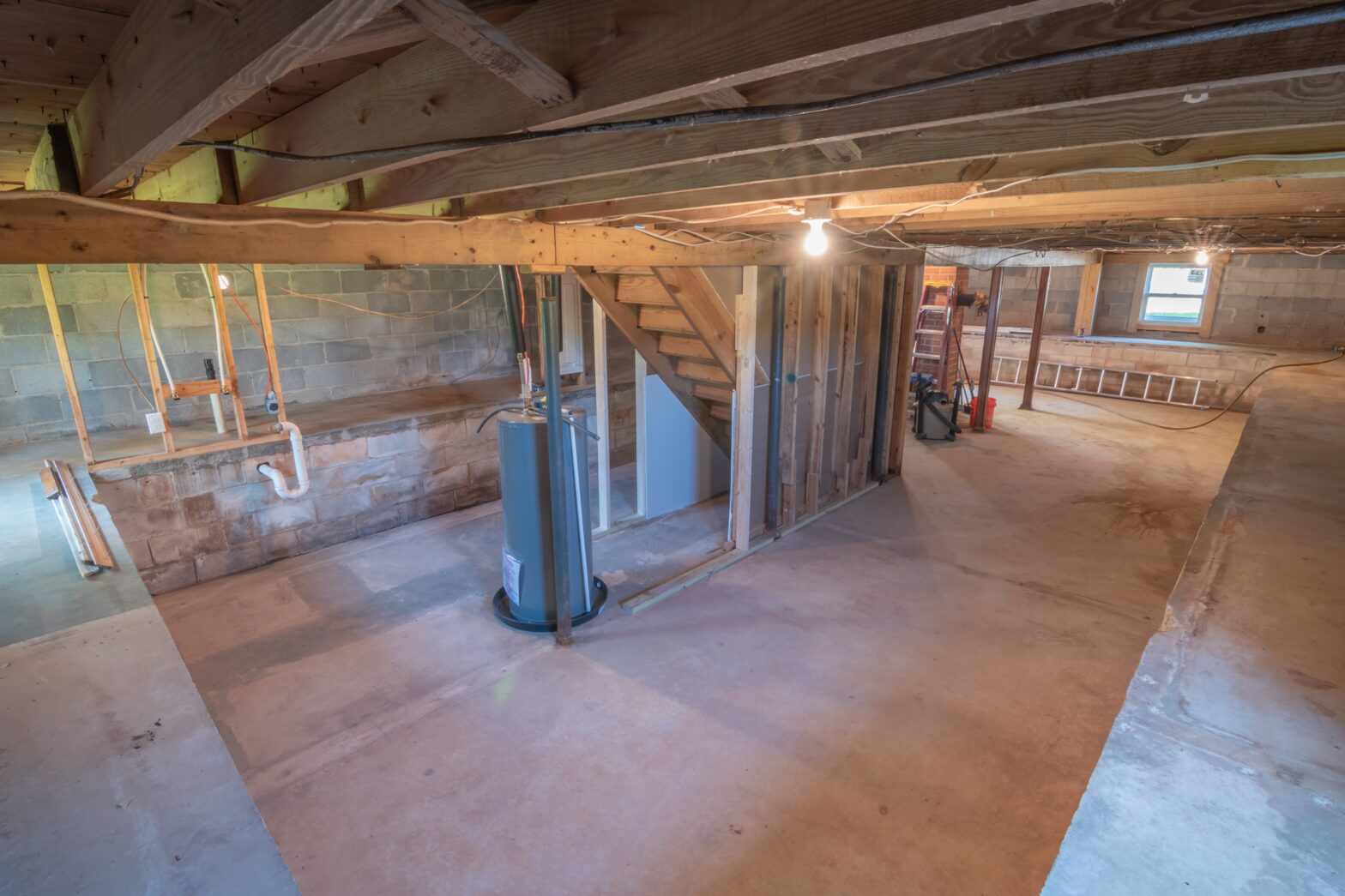Consider Flooring that Maximizes the Comfort and Style for Your Finished Space
Finishing your basement is a fantastic way to maximize your home’s space and increase its value. However, when it comes to selecting the right flooring for this unique area, there are several factors to consider. In this blog post, we’ll explore the best choices for finished basement flooring, taking into account durability, moisture resistance, comfort, and style.
Luxury Vinyl Plank (LVP):
Luxury Vinyl Plank, or LVP, is an increasingly popular choice for finished basements. It closely resembles hardwood flooring but offers superior moisture resistance and durability. LVP is made of synthetic materials, making it highly resistant to water damage and moisture-related issues commonly found in basements. With a wide range of styles and finishes available, LVP provides a versatile and cost-effective flooring solution.
Ceramic or Porcelain Tile:
Ceramic or porcelain tile is another excellent option for basement flooring. These tiles are known for their exceptional moisture resistance, making them ideal for basements prone to dampness. Tiles are available in various designs, colors, and patterns, allowing you to create a unique and personalized look for your basement. Additionally, tiles are easy to clean and maintain, making them a practical choice for high-traffic areas.
Engineered Hardwood:
If you prefer the timeless appeal of hardwood, consider engineered hardwood for your finished basement. Unlike solid wood, engineered hardwood is constructed with multiple layers, making it more resistant to moisture and less prone to warping or swelling. Engineered hardwood offers the warmth and elegance of traditional wood flooring while providing added durability in basement environments. Ensure you choose an engineered hardwood specifically designed for below-grade installations.
Carpet Tiles:
For a cozy and comfortable feel in your basement, carpet tiles can be an excellent choice. Carpet tiles are modular, allowing for easy installation and replacement. They provide insulation and noise reduction, making them perfect for creating a warm and inviting space. Opt for carpet tiles with moisture-resistant backing to prevent potential issues caused by moisture seeping through the basement floor.
Concrete Staining or Polishing:
If you’re looking for an industrial and contemporary aesthetic, consider concrete staining or polishing. This option showcases the natural beauty of concrete while providing a durable and low-maintenance flooring solution. Concrete staining offers a wide range of color options, allowing you to customize the appearance to suit your style preferences. Additionally, concrete floors are resistant to moisture and can withstand heavy foot traffic.
Yes, Options Exist but Know the Advantages and Disadvantages for All Types of Flooring
Choosing the right flooring for your finished basement is crucial to create a functional, attractive, and long-lasting space. Each flooring option discussed in this blog post has its own set of advantages, so consider your specific needs and preferences. Whether you opt for luxury vinyl plank, ceramic tile, engineered hardwood, carpet tiles, or concrete staining, selecting the right flooring will contribute to the overall comfort and beauty of your finished basement.

